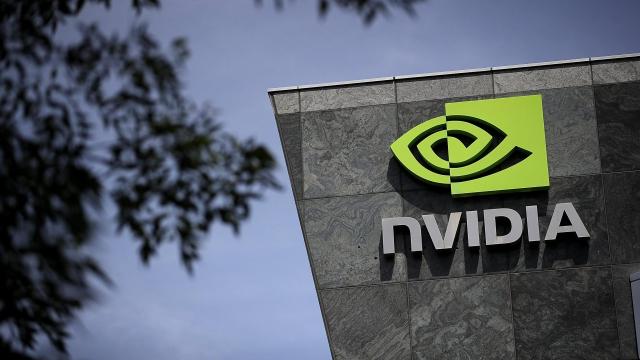The biggest semiconductor acquisition in history is apparently on the brink of collapse. Nvidia is reportedly preparing to declare defeat in its attempted $US40 ($56) billion purchase of Arm from SoftBank, according to a Bloomberg report.
Nvidia’s acquisition of Arm has faced regulatory scrutiny since being announced in September 2020. Regulatory bodies in the U.S., UK, and EU launched investigations into the purchase, and in December of last year, the U.S. Federal Trade Commission sued to stop the transaction, arguing that Nvidia would be too powerful owning a company whose chip designs are used in rival products and across various industries.
Regulators aren’t the only opponents of the acquisition; on the other side of this two-prong front are Nvidia rivals who have decried the purchase, claiming Arm couldn’t maintain independence under a company in direct competition with them. Those reportedly against the deal include Microsoft, Qualcomm, Intel, and Amazon — hardware makers whose products rely on Arm’s chip designs. The Bloomberg report, citing an unnamed source familiar with the process, says these firms have worked with regulators from around the world to squash the deal.
Nvidia attempted to reassure its competitors, promising to “continue to operate its open-licensing model, while maintaining its global customer neutrality,” but the tech juggernauts aren’t convinced. They reportedly fear the acquisition would eventually erode their relationship with Arm, and that Nvidia would give itself an unfair advantage by funelling resources into its own venture and leaving competitors hung out to dry.
The importance of Arm as a supplier of crucial chip technology can’t be overstated. The company’s chip architecture made headlines when Apple announced it’d be making its own custom Arm-based silicon, which would go on to power the company’s MacBook laptops and iPad Pro tablets. Where Nvidia’s claim to fame is graphics cards, Arm-owned technology exists in almost every gadget we use throughout our day, from phones and wearables to cars.
While the implications of this deal had been mused over since its public announcement, there was never any guarantee of it going through. Nvidia hasn’t been helped by renewed efforts from regulators to clamp down on monopolies. The new head of the Justice Department’s Antitrust Division, Jonathan Kanter, said on Monday that the government should try to stop proposed mergers that pose anticompetitive concerns rather than finding ways to help them close. Kanter is now working with Lina Khan, the chair of the FTC, to rewrite merger guidelines create a dozen years ago to address issues raised specifically by the tech industry. As the New York Times reports, President Biden told the agencies to review and strengthen guidelines surrounding antitrust legislation.
Nvidia and Arm publically maintain a commitment to pushing the acquisition through the regulatory process; however, internally, the company best known for making graphics cards for gaming PCs is reportedly telling partners that it doesn’t expect the deal to close.
“We continue to hold the views expressed in detail in our latest regulatory filings — that this transaction provides an opportunity to accelerate Arm and boost competition and innovation,” Nvidia spokesman Bob Sherbin told Bloomberg. For its part, Softbank said it was “hopeful that the transaction will be approved.”
When the Nvidia/Arm purchase was originally made public, Nvidia said it would help to “create the world’s premier computing company for the age of AI.” The company was hoping to close the deal within 18 months, or by March 2022, but immediately hit roadblocks that have slowed the process to a halt. We’re now nearing the two-year mark, and it will likely be several more months before the deal comes to a resolution.
But even if Nvidia can push things through U.S., UK, and EU regulatory bodies, it will go up against China, where Arm already expected to face tough scrutiny. It’s also where another blockbuster deal between chipmakers was shot down when Qualcomm’s $US44 ($61) billion attempted acquisition of NXP Semiconductors was abandoned after failing to win Chinese approval. According to the Bloomberg report, Chinese authorities are “inclined to block” the Nvidia/Arm deal should it make it through other regions.
If the takeover falls through, Nvidia will pay SoftBank Group $US1.25 ($2) billion to go along with the $US2 ($3) billion the GPU-maker paid at signing. Worse yet, the process has reportedly fractured Nvidia with some people ready to wave the white flag while others believe they can make a strong case in the FTC trial (which is set to begin on Aug 9). Where Nvidia faces too bumpy paths, Softbank is reportedly weighing its options between a “wait and see” approach (Nvidia shares, which are part of the deal, continue to grow) or pursuing an IPO for Arm to drum up interest from investors.
Editor’s Note: Release dates within this article are based in the U.S., but will be updated with local Australian dates as soon as we know more.
